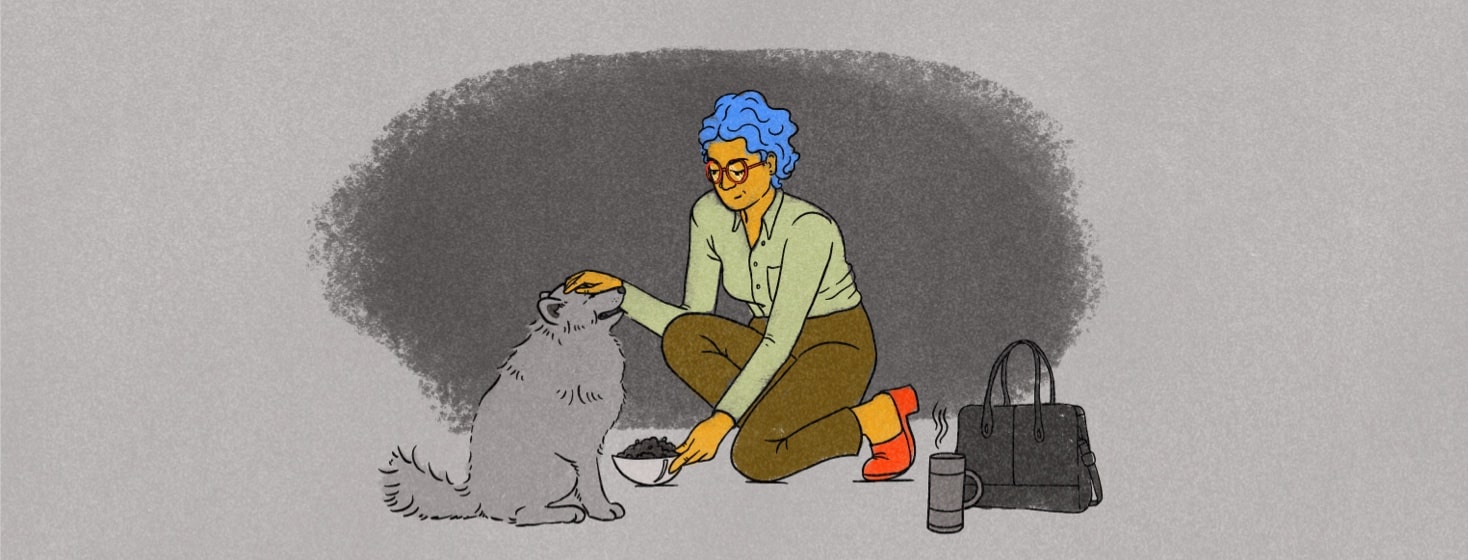Major Depression's Cousin: High-Functioning Depression
The majority of my depressive episodes have been severe major depressive episodes, in which I'm barely able to function, if at all. Almost all of them are accompanied by suicidal ideation and at times I end up being admitted to an inpatient psychiatric facility. Thankfully, I haven’t had one of those in over 10 years.
I feel as though my medications (2 antidepressants and a second-generation antipsychotic) continue to work to keep my mood mostly stable, and for that I remain thankful.
Imposter syndrome at a new job
At the beginning of this year, I started a new job as a clinical supervisor at a small group practice. I was thrilled to have this opportunity. Despite being in the field for many years, the chance to be a supervisor had never presented itself. I also had major imposter syndrome and felt extremely anxious.
I found myself working long (11-12 hour) days, but I was enjoying the mix of carrying my own caseload, learning to supervise a staff of clinicians, and administrative work. At the end of my 3-month probation, I was told I was doing a good job. I felt relieved.
Work stress can be a trigger
Over the summer, however, there was a situation at work that stressed me out. Briefly, I believed it impacted how I was seen in a supervisory capacity. And for the several weeks it remained unresolved, I remained in a heightened state of anxiety, unable to sleep and barely eating.
I wouldn't say I was depressed, but for a couple of days, I experienced suicidal ideation. I believed my reputation was going to be permanently damaged and I was convinced killing myself was the only way to escape that. At the same time, the fact I was thinking about suicide frightened me because I thought I was past that. At that point, I reached out for help with a new provider. Unfortunately, that professional relationship didn’'t work out and we terminated about 2 months later. But, the crisis had passed.
High-functioning depression
I realized I was most likely suffering from high-functioning depression. I could wake up, go to work, take care of my dog, take care of everything else I needed to, but I was still feeling this sense of sadness pervading every aspect of my life.
I wasn't sleeping, I was up each morning at 2:00 or 3:00 a.m. The world is empty and lonely at that hour, dark and big. And time crawls.
What is high-functioning depression?
An article by Medical News Today notes that "high-functioning depression" is not an official diagnosis. The article explains that some experts believe that the term comes from a lack of clarity surrounding persistent depressive disorder (PDD), which is an ongoing form of depression.1
The article goes on to explain PDD symptoms. "In addition to low mood, people with PDD may also have at least two of the following symptoms: changes in appetite; oversleeping or insomnia; extreme fatigue; low self-esteem; difficulty concentrating and making decisions; feelings of hopelessness, worthlessness, or guilt."1
Another article I read on Fortune.com said, "One sign of high-functioning depression is diminished pleasure, as if the volume is turned down on your life. You don't feel quite like yourself because you don't derive as much enjoyment out of your favorite activities. And, while you're capable of performing tasks, you feel a bit like a zombie while doing them, moving on autopilot from one thing to the next."2
Medical stress, financial stress
Other factors that are contributing to this high-functioning depression are some ongoing medical issues that remain unresolved. They are not life-threatening, thank goodness, but are potentially serious and have been dragging on since the summer.
Another is financial stress, and I know I'm not alone in this as inflation is affecting most everyone, as salaries have not kept up with the rate of how much prices have risen. I recently took a second job as an adjunct instructor at a small private college teaching a remote introductory counseling class.
Losing pleasure and motivation
I hate feeling like I'm going through the motions. Things that used to give me pleasure, walking and playing with my dog, my passion for writing, going out for dinner with friends – now a lot of the time feel as though they are chores.
Months ago I reached out to my former longtime psychiatrist and therapist Dr. Lev (not her real name) about a medication adjustment and she recommended transcranial magnetic stimulation (TMS). When you do TMS, you need to attend 5 days a week for 5-6 weeks and that is not doable with my work schedule.
I just reached out to another new provider, and she declined to work with me. During our 15-minute phone consultation, the tone started to shift when I revealed I had a history of borderline personality disorder (BPD), even though I assured her I was long recovered. Stigma is alive and well, I guess.
Continually coping
Part of me feels I will be okay. I just don't know when. And a nagging part of me is saying "Watch out, you know how fast and hard you can fall." And the strange part is that both are true.
